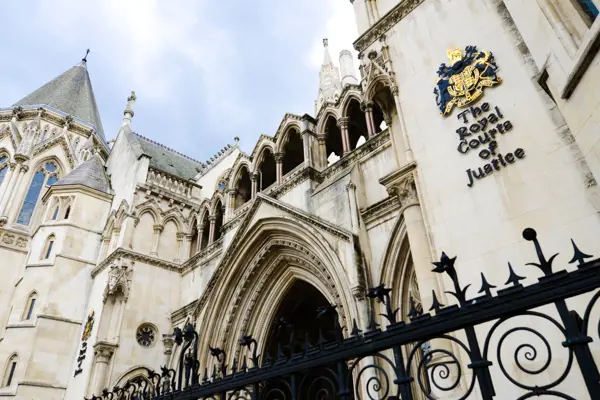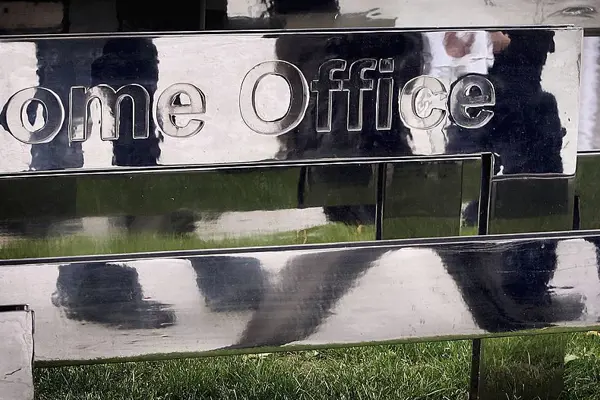
How to obtain your medical records
Under the Data Protection Act 2018 and the Access to Health Records Act 1990, patients have the right to have copies of their own medical records.
There could be many reasons why you require access to your own or a dependent’s medical records, including to:
- Make a complaint about your medical care.
- Bring a claim about the medical care a family member received, such as your child.
- Move abroad and pass records to a new doctor.
- Find out more about your previous healthcare.
With these answers to common questions, understand how to get your medical records, what they include, and who can legally access them.
Get help today
Request a call back by completing our short form
How do I get my medical records?
You can apply to access your medical records by contacting the records holder and making a request for a copy. The records holder could be your GP, hospital, or another healthcare provider.
Depending on who holds the records you wish to see, to request a copy you can:
- Write a letter.
- Use GP online services.
- Use the Trust’s online contact form, if applicable. Search ‘[trust name] and subject access request’ to see if it is available.
You can also see communications between your GP and hospitals, as well as other NHS services.
Requesting medical records
Email or completing an online form is the quickest and easiest way to request access to your medical records. Check your GP’s website to see if there is a specific contact form or email address to use. If you prefer to write a letter, address it to the Practice Manager. The GP’s address will be on their website.
You can also view your GP records online using the NHS App.
If you want your hospital records, check the website of the Trust that the hospital belongs to. Usually, searching for “subject access request” will bring you to the relevant section of the website, where there should be a contact form or email address. If you prefer to write a letter, address it to “Medical Records Department” or the “Subject Access Request team”.
Whether you send an email or letter, it is important that the records holder can easily identify you. They will often have more than one patient with the same name, so your email or letter should include your:
- Full name (and past name if it has recently changed, e.g. your maiden name)
- Address (and former address if you have moved recently)
- Date of birth
- Hospital number (if known)
The records holder may ask you to verify your identity. This can include providing proof of identity (e.g. a copy of your passport) and a proof of your address (e.g. a current driving licence or recent utility bill).
Once your request has been submitted and your identity verified, you should receive a response within one month. This time limit can be extended by the records holder where the request is complex. In this case, they should inform you of this and set out the reasons why they need more time.
Your records will usually be provided in the same format as your request:
- If you write a letter, your records should be provided in hard copy.
- If you email or use an online contact form, the records should be provided electronically.
However, you may specify a preference and alternative formats can be agreed. For example, you could provide your GP with a USB stick to put the electronic records on.
If any of your records are unclear, or have been poorly copied, you are entitled to ask for better copies. Similarly, if you think any records are missing, you are entitled to ask for this to be checked and any additional records provided.
X-rays and other scans form part of patients’ medical records, which means that getting access to them is covered by the same rules. These are often collectively referred to as “imaging”.
When writing your request to the records holder, you should specify if you want copies of the relevant imaging as well. This is because these will not necessarily be provided when medical records are requested.
Imaging is usually provided on a CD-ROM or via email.
Who can access my medical records?
Only your doctors and other healthcare professionals – such as pharmacists – can access part of your medical records in the UK.
This part is called your Summary of Care Record (SCR) and is a centrally stored electronic file. It contains your:
- Name
- Date of birth
- NHS number
- Allergies
- Known side effects of medication
- Repeat medications
- Details of medication prescribed in the past 12 months
You can choose to add more information such as immunisations, long-term health conditions and particular care needs. This can be discussed with your GP before adding it.
Professionals who view your SCR must check in with a swipe card to log each time they access it.
Other people's medical records
In limited circumstances, you may be able to access someone else’s medical records.
In general, the parents of children under the age of 18 may have access to their children’s records, provided this is not contrary to the child’s best interests or a competent child’s wishes.
Records may also be requested on behalf of patients who lack the capacity to make a request for themselves. Such requests should come from an individual with authorisation to make decisions on behalf of that patient.
However, the precise rules relating to children’s records and the records of patients lacking capacity can be complex. A solicitor may be needed to provide advice in some cases.
If the subject is deceased, you can apply for access to their health records if you are the administrator or executor of their estate, or someone with a claim resulting from the death. Only information relevant to the claim will be disclosed.
When someone dies, their GP records are stored at Primary Care Support England. You can apply to the local records manager for access. GP records are destroyed 10 years after the patient’s death. Any hospital-based records will be archived by the hospital for varying periods of time, depending on the Trust’s retention policy.
What goes on your medical records?
Information that can help doctors and other medical professionals is stored on your medical records, so they can ensure you receive the right care. Your name, age, address and NHS number are all included on your records.
There’s also information about previous tests, scans and x-rays, alongside details of treatments, medicines and any allergies or reactions you’ve had to medication in the past.
Information about your lifestyle – such as whether you smoke or drink – appears on your medical records too, along with instances of previous hospital admissions and discharges.
You can use the online services to see parts of your record such as:
- Medicines
- Test results
- Vaccinations
- X-rays
Medical records costs
In general, the holder cannot charge a medical records fee for supplying you with the copies . There are some limited exceptions to this rule, such as where the request is deemed to be ‘manifestly unfounded’ or ‘excessive’. For example, repeated multiple requests, in which case a reasonable fee may be requested.
There are only limited circumstances in which a records holder can refuse to provide you with copies, such as :
- The doctor/hospital may fear that the contents of the notes could have an adverse effect on your own health.
- They can also refuse access if the records identify someone else and it is not possible to redact that specific information.
- The request may also be refused if it is considered to be excessive.
These exclusions only apply in unusual situations and they must provide you with their reasons for refusing. If the records holder refuses to supply you with copies and does not provide a good reason, then you can complain to the Information Commissioner’s Office or, in some circumstances, apply to Court for an Order.
Get help today
Request a call back by completing our short form

